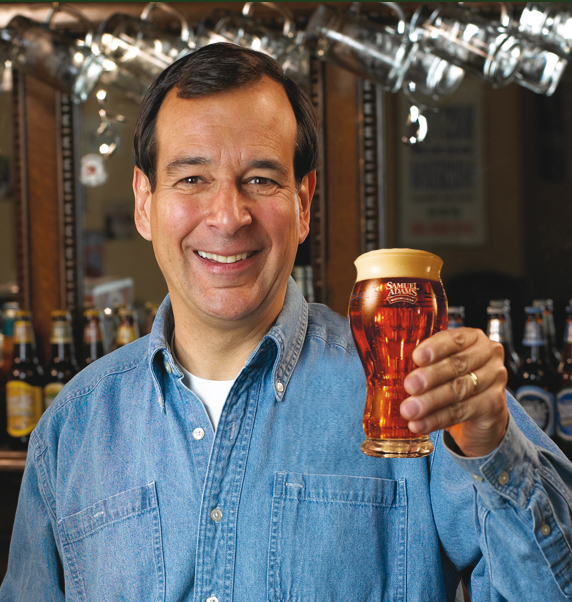All eyes on Samuel Adams
When Harvard-educated Chairman Jim Koch decided to abandon a career in consulting to become a brewer, he set out one of the best beers in America. And that’s what he did: Mr Koch created the award-winning Samuel Adams Boston Lager – the flagship beer in a line of more than 20 varieties – allegedly from an old Koch family recipe that had been passed down for generations.
Whereas the big brewers in the U.S. overly rely on their marketing quality, Boston Beer uses its commitment to product quality to drive its advertising strategy. In 2009, it spent 30 percent of net revenue on advertising, which included TV commercials showing off its premium ingredients and four-vat brewing process.
So far Boston Beer has managed to maintain its street credibility as a craft brewer, which is no small feat, considering that it is a stock market-listed company and outdoes all other craft brewers volume-wise. Boston Beer’s seasonal and specialty beers continue to rack up awards at domestic and international beer festivals.
The craft beer industry appears to have forgiven Boston Beer for having started out as a “virtual brewer”. Mr Koch’s original business plan relied on having the beers contract-brewed by the major brewers. Also a blanket of silence has been pulled over Mr Koch’s rather tasteless “Sex for Sam” radio sponsorship. In 2002 a radio show encouraged a couple to have sex on-air in a vestibule at New York’s St. Patrick’s Cathedral. Boston’s Catholic publicans were so outraged that they poured Sam Adams beer into the gutters.
Apparently, all is forgiven and forgotten. Today, Boston Beer is only about quality, quality, and quality.
This strategy is not without its risks. By competing on taste, Boston Beer is able to differentiate itself from the big guns. But this taste comes at a premium. Samuel Adams drinkers are paying more per bottle for better ingredients, and it’s these superior ingredients combined with the company’s relatively small size that make it difficult for the company to exert pricing power over its suppliers and leave it susceptible to price fluctuations.
Compared to Anheuser-Busch, Molson Coors and SABMiller, Boston Beer is a small fish in a big pond. When you’re fighting heavyweights for shelf space, it’s not going to be an easy battle.
To increase market share, Mr Koch is likely looking to grow the company’s distribution network, currently about 400-distributors, and its sales force, a team made up of 265 employees, possibly the largest in the U.S. beer industry.
To accommodate increasing demand, Boston Beer acquired Diageo North America’s brewery in the Lehigh Valley area of Pennsylvania in 2007, giving it in all three production facilities in Massachusetts, Pennsylvania, and Ohio.
Boston Beer’s increasing popularity does not spell the end for the big three U.S. brewers. They are also trying to establish market share in the “better beer” segment. MillerCoors’ Blue Moon (a take on a Belgian wheat beer) is the fastest growing craft/specialty brand in the supermarket channel, although it does not rank among Beer Marketers Insights’ top 20 U.S. beer brands (which means its volume must be below 1.7 million hl). Another bonus for Blue Moon is that, unlike with other beers, women account for half of the consumers. Men, however, account for 60 percent to 70 percent of the volume.
Likewise AB-InBev has seen volumes of its craft beer segment grow rapidly. AB-InBev owns 36 percent of Craft Brewers Alliance, a stock market-listed group of craft breweries (about 700,000 hl in 2009), which markets and sells the beers of The Redhook Ale Brewery (Seattle), Widmer Brothers Brewing Company (Portland, Oregon), Kona Brewing Company (Hawaii) and Goose Island Beer Company (Chicago).
These competitors’ size and pricing advantages could make it difficult for Boston Beer to maintain, let alone grow, its market share if the American beer lover deems these products satisfactory substitutions.
But on balance, analysts believe that Boston Beer’s commitment to quality and the ample growth opportunities provide more upside than downside.

